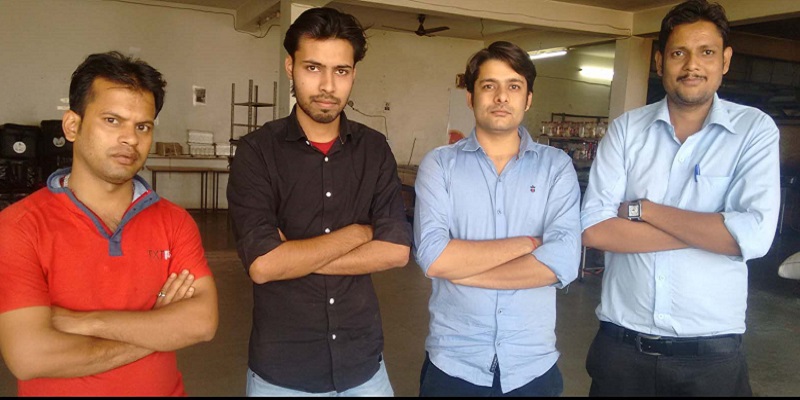Category: Investment
Singapore private university, SIM to invest US$35.1 million to support entrepreneurs in Platform E
A major Singapore private university, Singapore Institute of Management (SIM) is investing S$50 million (about US$35.1 million) into an initiative to nurture future entrepreneurs and help scale startups and SMEs.
The programme for aspiring entrepreneurs which turns ideas into businesses is known as Platform E. It will be operating at a 25,000 square feet co-working space at the SIM Management House in Namly Avenue. The place will also be rented out as a commercial co-working space for non-programme participants.
The industry-agnostic programme will seek to train and equip entrepreneurs with the necessary skill sets, incubate business ideas and help startups develop their go-to-market strategies as well as identifying their product market fit. Professional corporate services, peers, investors, mentors will also be brought on board to facilitate the programme.
“SIM will adopt a multi-pronged approach to eventually includes initiatives to facilitate business startups, help small businesses scale up as well as fund promising ventures,” said a spokesperson from SIM.
Heading Platform E is Mr. Alan Wong and Professor Virginia Cha, who are the chief executive and lead programme developer respectively. Alan Wong is a veteran business advisor who has 20 years of handling both entrepreneurial startups and C-level experience in large organisations such as Cable & Wireless and Huawei Devices. While Professor Virginia Cha is an active researcher, educator, mentor and angel investor in Singapore’s entrepreneurship ecosystem with 32 years of an executive management role in technology companies.
“We believe that any good entrepreneurship programme must help the individual acquire deep business and leadership skills, and more importantly, inculcate in him the fortitude to take on and sustain a long and challenging journey,” says Mr. Alan Wong, “Platform E will equip the entrepreneur not just to run his own businesses but to also take on the role of an intrapreneur within an organisation.”
Platform E will launch in April 2017 and the entrepreneurship programme is not only open to fresh graduates, but also to professionals, managers, executives and technicians (PMETs) who are seeking a career switch. Existing entrepreneurs who meet with roadblocks are also eligible to apply.
The SIM-initiative will feature two entrepreneurship tracks – IntenseE Track and IncubatE Track which are a 12-months and 4-months programme respectively.
The longer programme is aimed at fresh graduates who are new to entrepreneurship or people looking for a career switch, equipping them with the essential know-hows to ideate, start, operate and sustain a business. The programme offers a full suite of solid grounding and will end with a pitch day where participants can showcase their startups.
On the contrary, the four-months programme is designed for mid-journey entrepreneurs who are stuck at roadblocks or have the intention to scale up their businesses. This programmes is made to impart in-depth industry knowledge and practices and will customize electives according to specific needs.
Commenting on Platform E, the Chairman of its Board of Directors and Member of SIM’s Governing Council, Mr. Tan Choon Seng says, “As we move into a future of ever greater market disruptions, entrepreneurship and innovation will be a key engine of economic growth. Platform E is SIM’s first move to support Singapore’s push in the new economy.”
Besides Platform E, SIM’s S$50 million investment will also go towards supporting promising start-ups mainly at pre-seed and seed stage.
For more information, please visit http://platforme.asia/
By Vivian Foo, Unicorn Media
NetEase, one of China’s biggest game companies is expanding into the Pork business
Chinese internet giant, NetEase (NASDAQ:NTES) which operates Blizzard’s World of Warcraft in China, on top of running a highly trafficked internet news portal is also now expanding into the business of raising organic free-range pigs, after its debut with the auction of three Jeju Black Pigs which are said to have a unique flavor.
NetEase auctioned the three black pigs over the weekend. The bidding for the first pig started at one yuan on November 25 but was in the end auctioned off at an astonishing price of 110, 000 yuan (about US$15,900). The second one fetched an even higher price of 160,000 yuan (about US$ 23,150).
The last one – a 42 kg black pig reared by NetEase was auctioned at a recorded 277,000 yuan (about US$ 40,000) on November 27, heralding the company’s seven-year experiment of rearing quality have finally validated the online gaming giant’s position in the commercial pig farm business.
Looking at this, the animal which weighed more than 42 kg, including shoulder, streaky pork, legs, etc. sees each kilogram worth more than 2,600 yuan (about US$377), which equates or even topped the price to Kobe beef, a famous Japanese delicacy.
However, for NetEase founder and CEO, Ding Lei, producing black pork is more of a public relation effort or social service rather than a profitable business. As the NetEase’s pig farm revenue with its limited production is minuscule compared to its core internet game business.
But if black pork becomes popular in China and NetEase’s pig-rearing business maintains reasonable profits, NetEase may still get a slice of China’s pork market which is worth 1.4 trillion yuan (about US$ 203 billion).
Nevertheless, CEO Ding Lei ultimate aim is not in revenue but rather to revive Chinese livestock-rearing methods and to win the government and consumer goodwill for NetEase. Proposing a science-based production of safe, healthy meat, the company will upload its model and process on the Internet.
NetEase also promises its black pork to be safe and delicious while the rearing process is environment-friendly. The black pigs at the base are fed only natural food, raised for 300 days, kept in green bamboos with smart monitoring.
It is also worth noting that the pigs learn to use the toilet and keep themselves healthy.
“Pigs at our production base use the toilets, sleep in apartments. They never take injections and medicines. In other words, their living habits are healthier than many people,” Ding Lei said, “Besides, they enjoy exclusive feed, which is provided by nutrition experts from home and abroad. I can say that the pigs are happier than pandas except for the fact that they will be eaten by people.”
This would be a long-term investment for Ding Lei, as confident of his pork quality, the NetEase CEO is also planning to establish a gourmet pork restaurant – highlighting his livestock early next year in Zhejiang Province.
Besides, 20,000 black pigs will also go on sale in December and the price will not be as expensive as in the auction, “It will costs roughly between 30 yuan and 40 yuan, depending on the parts of pigs. The price is a bit higher than the price in farmers’ markets and cheaper than the price in specialty supermarkets,” Ding Lei said.
By Vivian Foo, Unicorn Media
Bengaluru-based foodtech startup, Mr. Hot Foods raises seed funding via the IvyCamp platform
Food delivery services startup Mr. Hot Foods Pvt. Ltd said on Tuesday it has raised an undisclosed amount of seed funding from angel investor Pawan Raj Kumar through the IvyCamp platform.
“The addition of Pawan as a mentor to our team has helped us to understand the dynamics of Food & Beverage industry on a larger scale. His ideas and regular inputs help us in strategic decision making,” co-founder of Mr. Hot Food, Pankaj Sharma said.
Founded in 2014, by IIT Kharagpur alumni Pankaj Sharma . Mr. Hot Foods aggregates local bhojanalayas (local eating houses), thali houses, and tiffin centers to deliver homely food to users in a restaurant style of ordering with standardized packaging.
The vendors get training from professional chefs and access to analytics and technology to handle operations efficiently. Operating in Indore, Madhya Pradesh, and Kota, Rajasthan, the startup delivers more than 1500 meals daily to students and professionals who work away from home.
The company also has a weekly menu planner for a regular subscription, where a customer can plan his or her diet among 15 to 16 items per day per shift according to taste, diet, and budget. Also, Mr. Hot Foods either charges 4% of the total order cost or a fixed monthly fee from vendors.
“Our revenue model is very simple, where a customer gives us advance money to recharge online food wallet and can consume it either by filling menu planner or by ordering instant orders as and when they need. We are working on tie-ups with corporate offices and institutions by providing them food in bulk at a discounted price,” says Pankaj.
Bootstrapped, the team has been looking for external funding to expand across different parts of the country which has been met by the fundraiser facilitated by IvyCamp – an innovation and entrepreneurship platform by IvyCap Ventures, which connects entrepreneurs with mentors, investors and incubation centers through the global alumni networks of institutes such as IITs, IIMs, ISB and BITS Pilani.
Prior to this, the online food ordering business in India is estimated to be worth around INR 6,000 crore (about US$ 883 million), growing at about 30% month to month, according to a report by India Brand Equity Foundation, released earlier this year.
Commenting on the announcement, Anju Gupta, cofounder and president at IvyCamp said that, “Amidst the food tech funding pullback, we were able to get funding for Mr. Hot Foods Due to their innovation in business models and are sure they will be able to raise more via the IvyCamp platform.”
Looking at other Indian food tech startups, MonkeyBox Food Tech Pvt. Ltd, which delivers healthy food for children has also raised an undisclosed amount in seed investment from early-stage investor Blume Ventures. While in September, food-tech startup Idea Chakki Pvt. Ltd also secured an undisclosed amount of seed funding from Ratan Tata, interim chairman of Tata Sons.
By Vivian Foo, Unicorn Media
Malaysian Cradle Adds 6 New Partners And USD 3.26 Million To Fund Local Tech Startups
Today marks another achievement for Malaysia’s early stage startup investor – Cradle Fund Sdn Bhd. as the funding company reveals its 7th batch of co-investment partners – adding six more venture capitals to the list that will join Cradle’s equity co-investment program.
Among the six new equity co-investment partners include RHL Ventures, TinkBig Venture, Biz Angel Network, EIX Group, Segnel Ventures, and PlaTCom Ventures. This latest inclusion will bring the number of Cradle’s equity co-investment partners from 25 to 31 as well as an investment of up to MYR 14.5 million (about US$3.26 million) to fund local tech startups.
The equity co-investment program where Cradle matches the contribution made by a partner has started in 2014 with existing co-investment partners including Fatfish Ventures Sdn Bhd, OSK Ventures International Bhd, CoENT Ventures Partners Ltd, Crystal Horse Investment Pte Ltd, Captii Ventures Pte Ltd, Kathrein Ventures Sdn Bhd, and KK Fund.
Additionally, the government-run organization has also signed a grant co-investment partnership with a Singapore-based seed fund provider, Golden Gate Ventures (GGV) back in June 2014. It has raised a total of MYR 161.2 million (about US$36.25 million) from the previous six cycles. Now, with its 6 new partners, the co-investment funds have been raised to MYR 190.2 million (about US$42.75 million).
“We wish to have a diversity of investors in our co-investment circle from venture capitalists and institutional investors to ECF platforms whose investors consist of sophisticated angels who are no stranger to funding early stage businesses,” said Cradle Group CEO, Nazrin Hassan.
Having these new partners, thus, would give the funding company an opportunity to tap into their partners’ insights and experience investing in startups which Cradle may not have. This, in turn, would bring advantage to the Malaysian startups that aim to become global players.

Cradle Logo
To date, more than 700 tech startups have benefited from Cradle, as the agency has the highest commercialisation rate among government grants in the nation. As for the co-investment scheme, there are 4 companies that were funded through the program which includes BeMalas, the only app one literally need for anything; MauKerja, a job-hunting platform; Sync Media, a mobile solution that aims to break down the barriers of communication between teachers and parents, and SupplyCart.
For this cycle with the latest six partners, Cradle announced that RHL Ventures and TinkBig will contribute the same investment amount of US$1.12 million, Biz Angel Network and EIX Group investing US$449,505 each, and Segnel Ventures US$112,367 while PlaTCom Ventures contribution were undisclosed, according to Cradle at an event in Kuala Lumpur on Monday.
The investment scene this year in Malaysia has been quite slow as compared to last year. It is apparent that the regional investment has subsided due to the geopolitical risk which has in turn affected not only the currency value but investments in Malaysian startups. Through this move, Cradle has moved and encourage venture capital investments in Malaysian startups to help spur the ecosystem.
On the other hand, Cradle Fund Sdn Bhd has also announced that its 2017 allocation from this year’s MYR 30 million will be reduced to MYR 22 million. This reduction has been announced in light of the healthy development of ecosystems for technology startups, which are increasingly able to tap into equity crowdfunding, as well as peer-to-peer financial and advisory facilities and services.
“The introduction of alternative platforms for startups to raise fund through Equity Crowdfunding (ECF) platforms and Peer-to-Peer (P2P) financing came at the right time. This has helped to reduce the impact of the slowdown,” he added.
As a whole, this collaboration will likely bring various benefits to the Malaysian startup ecosystems. Subsequently, there is still a reason to invest in Malaysia as not only does the nation has a pro-business government but simply put, the Malaysian entrepreneurs’ hunger for success is no less than their Singaporean peers. Moreover, there are fewer investors eyeing the country which opens up more opportunities for venture capitals.
For more information, please visit http://www.cradle.com.my/
By Vivian Foo, Unicorn Media
Singapore Jungle Ventures Closes Second Funding Round With US$100 Million
Singapore-based venture capital fund Jungle Ventures has made the final close of its second funding round, after meeting its target of US$1OO million. The VC funding plans have started since September 2015. These new funds represent a big step comparing to Jungle Venture’s first funding round in 2010, whereby the firm first debuted with only US$10 million when launched in 2011.
The VC, then, was headed by Amit Anand and Anurag Srivastavaa, with its first pan-Asian super Angel fund participated by individual investors which included founder of Match.com, Interwoven and Encentuate, Peng T Ong; Chief Executive of Space Matrix, Lim Der Shing; Former Head of engineering at Skype Toivo, Angus and co-founder of Sony Entertainment Television Jayesh Parekh among others.
And throughout this six years, the venture capital firm has expanded its investment portfolio with more than 30 investments using the funds from its initial round. These investments include a long list of companies across different regions which include firms such as Singapore-based TradeGecko, Travelmob, Fastacash and Crayondata; India-based Zipdial, Livespace, and Pokkt; Malaysia-based iMoney and CatchThatBus as well as Thailand-based Pomelo Fashion and Australia’s Edrolo.
According to a statement, the selection of these investments is based on two categories. That is they either have the potential of becoming a regional category leader, for example, Zipdial that was acquired by Twitter and iMoney, which has the potential of dominating the entire South East Asian market. Or they can have the potential to be a global category leader such as TradeGecko, an inventory management software or interior design company, Livspace.
With the new funds, this will also bring change to the operations of Jungle Ventures as the VC is now likely to cut larger cheques and will likely shift its initial focus on seed-stage deals to Series A and Series B investments primarily in Southeast Asia, India, and Australia. However, the company will also still be very much involved in early stage startup work, being handled by SeedPlus, a new fund that it has to establish in May this year.
According to a statement, Jungle Ventures second fund attracted existing and new investors including institutions such as Temasek Holdings, International Finance Corporation, National Research Foundation of Singapore, Hubert Burda Media as well as leading family office investors such as the Kewalram Chanrai Group and Khoon Hong Kuok.
“This is a significant milestone for Southeast Asia’s fast-growing startup ecosystem and we are grateful fo the faith existing investors and new partners have shown in us. With an exceptional team of 15 investing and operational professionals we intend to continue to invest and help build the best technology companies from this region,” said Amit Anand, the Founder of Jungle Ventures.
For more information, please visit http://www.jungle-ventures.com/
By Vivian Foo, Unicorn Media





